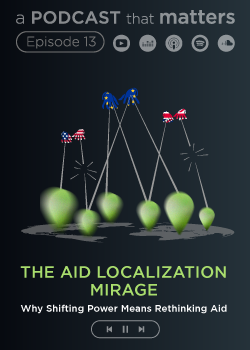Print

Rwandese honey: from flowers to supermarket
Details
Locations:Rwanda
Start Date:Unknown
End Date:Unknown
Sectors: Livestock (incl. animal/bird production & health), Poverty Reduction
Description
Beekeeping as a means of poverty alleviation.
ARDI decided in 2006 to support beekeeping as a means of poverty alleviation. Rwanda, commonly referred to as “country of thousand hills” has little land suitable for agriculture. Disputes over land rights contributed to the conflict in Rwanda that sparked the genocide. Today the scarcity of land is still a source of tension. Beekeeping is space efficient and a suitable intervention in a country with little land. Moreover, it requires low investment costs, while it has an ensured market and it is environmental friendly.
ARDI supported 4356 traditional beekeepers, including 1233 women, to adopt modern beekeeping techniques to increase production, income and employment. This was done through extension services, value chain development, investment and business linkages which led to the establishment of an apiculture business development company with a current turnover of 75.000 Euros and trading of 45 metric tons of honey per year. ARDI focuses in particular on women and young people because they are the engine of society.
Results:
- Financial support from ICCO of 75.000 Euros which led to the honey value chain development in Rwanda. An increase of honey production by 36.2% and beekeepers household income and employment by 52%.
- Modern honey production techniques adopted by 72.5% of producers; this led to the honey productivity increment by 34.1%.
- Honey productivity per hive increased from an annual average of 3.5 to 26.9 kg per year. Annual average household income increased from 190.2 to 396 USD.
- Establishment of a new api-business company with an annual turnover of 750.000 USD.
- Honey value addition and impact on price rose from 1.5 to 5.5 USD per Kg.
- Modern beekeeping technologies promoted api-business culture and attitude strengthened within beekeepers cooperatives in Rwanda.
We think it is important to support value chain development and improve the livelihoods of the rural poor by connecting them to the market. Therefore, we support our partner organization ARDI so that they can link small producers to the honey value chain.
We give:
- Lobbying and national advocacy on the new the business clusters (PEA) approach and the improvement of the enabling environment.
- Financial support to the honey value chain development activities mentioned in the strategic plan 2010 – 2012.
- Financial support to the training activities, like honey modern production techniques, harvesting and value addition techniques, business and investment workshops.
- Technical advice in business management, coaching and business linkages.
FED Cluster
ARDI is member of the Fair Economic Development (FED) platform Rwanda. Their objective is to reinforce the synergy and joint action amongst the various FED partners in Rwanda. The members work in different geographic locations in Rwanda and can learn from each others network, knowledge and experiences. By joining forces in a coherent program our partners prevent duplication of efforts; improve synergy and are more efficient and effective in reaching out to small holders.
Other specific objectives:
- Exchange forum: meeting between members of the platform around the different value chains products and actors to discuss best practices, problems, solutions to improve efficiency and effectiveness.
- Our partners perform mutual planning and evaluation.
- To support a more a more conducive place for actors to operate the platform will act together as lobby and advocacy force.

